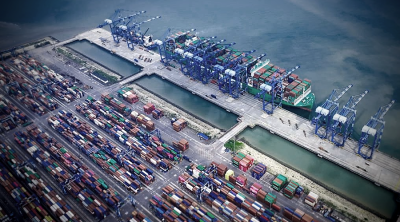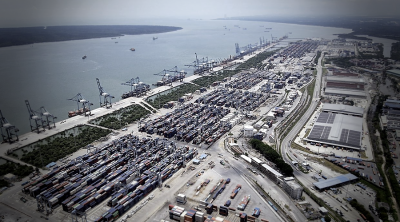
They came together in marble corridors with briefcases full of reports, statistics, and speeches.
They arrived from 185 countries, convening in the grand halls of Geneva with the restless expectation of history in the making: a landmark global treaty to stop plastics from choking our planet and bloodstream.
Instead, late last night, they left empty-handed, scattering back to their capitals with little more than diplomatic platitudes and press statements.
Once again, the world has failed to act.
The collapse of negotiations after six rounds of talks across three years is not simply procedural deadlock. It is tragedy institutionalized.
For those on the frontlines of the plastic crisis—from the fishermen of Tuvalu dragging broken nets through oceans slick with microfibers, to the children in Manila playing barefoot among heaps of discarded styrofoam, to the ordinary citizens in Europe and America learning that plastic particles have been found in human placentas—the news from Geneva is salt in an open wound.
This was supposed to be the moment the world stood up against its own suffocating addiction.
Instead, it was another sad performance in the theatre of multilateral paralysis, another empty gesture dressed up as progress.
Capitalism’s perfect product: A plastic future
The dream of industrial capitalism has always been about exponential growth, shiny products, and efficiency delivered with the weightless promise of disposability.
Plastic became capitalism’s perfect child—cheap to make, easy to mold, endlessly versatile, designed not for durability but for convenience.
For decades, petroleum producers and consumer industries sold the fantasy of a “plastic utopia”: colorful packaging, lightweight materials, synthetic everything. Convenience was weaponized as freedom.
But the plastic century has come of age, and the costs are devastating.
Today, the world produces over 430 million tons of plastic every year. Less than 10 percent of it is ever recycled. The rest piles up in landfills, floats across oceans, or breaks down into microscopic shards now coursing through our bloodstreams.
Scientists have found microplastics in breast milk, human lungs, and even in the brain.
In some communities near production plants, cancers and birth defects spike. The material that never dies is slowly but surely killing us.
Against this backdrop, Geneva was supposed to deliver nothing less than a global rescue mission. Instead, it revealed our affliction: an economic system structurally incapable of reigning in its own dependencies.
The same forces that built this crisis—oil lobbies, petrochemical giants, and governments hooked on fossil profits—are the ones sabotaging every attempt at a solution.
The divide: Two worlds, one planet
The clash at the negotiations laid bare a civil war of interests. On one side stood the High Ambition Coalition, led by the European Union, Britain, Canada, and backed by dozens of African and Latin American countries.
Their proposal aimed not only at waste management but at the heart of the plastic beast: demanding caps on production, restrictions on hazardous chemicals, and a global phase-out of the worst offenders.
On the other side, the Like-Minded Group, a coalition of oil-rich states including Saudi Arabia, Russia, Iran, Kuwait and sadly Malaysia, argued that the treaty should remain narrowly focused on waste management and recycling.
In other words: keep the taps of production running, keep profits flowing, and shift the burden downstream.
The outcome? Stalemate. Again
Tuvalu, speaking for 14 Pacific Island nations whose coastlines are drowning in plastic and whose fragile ecosystems are suffocating, captured the despair with painful clarity: “For our islands, this means that without global cooperation and state action, millions of tons of plastic waste will continue to be dumped in our oceans affecting our ecosystem, food security, livelihood and culture.”
But how many more Tuvalu’s needs to speak, how many coastlines collapse, how many species vanish before the machinery of global diplomacy heeds the call?
Plastic was once hailed as the miracle material of modernity, but it has become the emblem of our broken age: indestructible, suffocating, cheap, and everywhere.
The disappointment we cannot afford
The chants from environmental groups outside the conference halls said it all: Empty talks, full oceans.
Each negotiation that ends without binding commitments means another year of plastic factories humming, more petrochemical facilities expanding, more microplastics saturating soils and stomachs.
Plastic is not just an ecological problem—it is existential. It lays bare the flaws of a system where corporate profit trumps planetary survival, where governments wedded to fossil capitalism cannot envision a different path.
Negotiators spoke of compromise, of future talks, of patience. But time is precisely what we no longer have.
Every missed milestone is a death sentence for countless ecosystems and communities.
The true tragedy is that the world knows exactly what it needs to do: reduce production at the source.
Recycling and waste management have been sold as the salvation for decades, but they are bandages on an arterial wound.
The average person today is told to use fewer straws, swap to reusable bags, or buy bamboo toothbrushes while entire industries expand plastic output by the millions of tons annually. Individual action cannot solve global systemic sabotage.
What future, if not this?
This failure forces us to confront an uncomfortable truth: the problem is not lack of knowledge or innovation—it is power.
Plastic embodies a broader crisis of democracy under capitalism: those most harmed have the least say, while those most profiting hold veto power.
Tuvalu’s plea was drowned out by the orchestrations of oil states shielding their revenues.
Colombia’s frustration— “blocked by a small number of states who simply don’t want an agreement”—was not hyperbole but diagnosis.
If capitalism at its core thrives on endless consumption, then expecting it to regulate plastic production is like asking fire to put itself out.
In this “plastic utopia,” humans have become unwitting hosts to the very material designed to serve us.
We are slowly being entombed in it—ocean trenches, mountaintops, dinner plates, newborn veins.
It is no longer pollution we can see—it is our inheritance.
The Geneva ghost
History may one day look back at Geneva 2025 as another tragic bookmark in the story of environmental collapse: a moment of possibility squandered, a gathering that produced only words while the oceans filled with plastic foam and the atmosphere with exhaustion.
But perhaps, if outrage can be channeled, failure itself can become fuel.
The environmental historian will not write that treaties collapsed because humanity did not know—only that it did not act.
For now, all we know is this: six rounds of global talks, three years of negotiations, and still no treaty.
If this is international cooperation, it is cooperation in suicide.
Plastic was once hailed as the miracle material of modernity, but it has become the emblem of our broken age: indestructible, suffocating, cheap, and everywhere.
Humanity needed boldness in Geneva; it got cowardice.
The planet waited for vision; it received excuses.
The truth cannot be recycled forever.

(Ravindran Raman Kutty is an active social worker.)
ADVERTISEMENT
ADVERTISEMENT








































